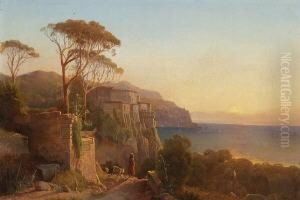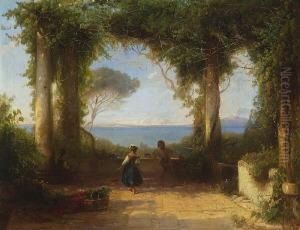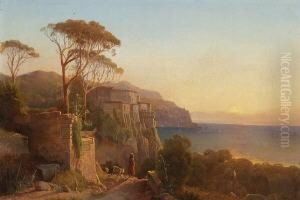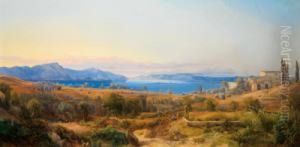Otto Erm. Emil Volcker Paintings
Otto Erm. Emil Volcker, often known simply as Otto Emil Volcker, was a German painter born on January 14, 1860, in Breslau, which is now Wrocław in Poland. He was a versatile artist who worked in various genres including portrait, landscape, and historical painting. Volcker studied at the Royal Academy of Arts in Berlin and later at the Academy of Fine Arts in Munich, which was a major center for art and culture during the late 19th century.
Volcker's artistic style was influenced by the academic art traditions of the time, which emphasized classical techniques and forms. Throughout his career, he exhibited a strong command of light and shadow, as well as a keen attention to detail. His works often contained a romantic sensibility, capturing the beauty of the natural world and the grace of the human form. Despite the rise of modernist movements during his lifetime, Volcker remained largely committed to the academic style, although some of his later works did show an increasing openness to contemporary influences.
During his lifetime, Otto Emil Volcker received moderate recognition for his artistic contributions. He participated in various exhibitions, and his paintings were collected by patrons across Germany. However, he did not achieve the same level of fame as some of his contemporaries. His death on December 16, 1938, in Berlin, came at a time of great upheaval in Europe, with the shadows of World War II looming. As a result, his work became somewhat overshadowed by the events of the era and the shifting tastes in art.
Today, Otto Emil Volcker is remembered as a skilled practitioner of academic art, representing a period in German art history that was characterized by a dedication to traditional aesthetics and craftsmanship. While he may not be a household name, his paintings continue to be appreciated by art historians and collectors who have an interest in this era of German art.



